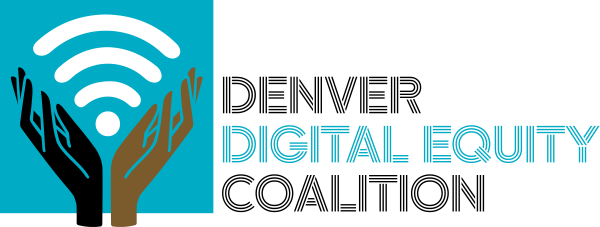As early as 1999, the National Telecommunications and Information Administration (NTIA) recognized that computer and internet tools were “increasingly critical to economic success and personal advancement.” More than two decades later, this statement is more true than ever – yet access to the internet, devices, and digital literacy remains starkly unequal.
Digital equity means ensuring that every individual has the technology, connectivity, and the skills necessary to participate fully in society. It is a prerequisite for accessing essential services and opportunities: from applying for jobs and managing healthcare to attending virtual classes and engaging in civic life. The Colorado Department of Labor and Employment states, “Digital literacy and access to the internet are considered a super social determinant of health. They are the backbone for all other social determinants of health (economic sustainability, health care system, community, and social context, food, education, neighborhood, and physical environment).”

Yet in Denver, the digital divide remains wide. As of the most recent data available:
- 13% of all households in Denver are digitally disconnected – meaning either they lacking a device, internet access, or both (U.S. Census Bureau, 2022 ACS 5-Year Estimates).
- Black and Latino households in Denver are twice as likely to be disconnected compared to white households.
- Neighborhoods in West and North Denver continue to experience higher levels of digital exclusion, mirroring broader historical inequities in housing, income, and infrastructure investment.
Nationally, digital exclusion continues to track with and deepen other forms of social inequity. Households with incomes under $50,000, people without a college degree, older adults, and people with disabilities are all disproportionately likely to be without home internet access (NTIA Internet Use Survey, 2023).
The COVID-19 pandemic exposed the consequences of digital inequity, prompting unprecedented investments at the federal, state, and local levels to close the gap. While these efforts helped many communities, the work is far from finished—and in some cases, threatened by shifts in policy. Denver must remain committed to ensuring digital access for all.
In the words of Angela Siefer, Executive Director for the National Digital Inclusion Alliance, “Envision a world in which everyone has the skills and the resources to use the internet to thrive and better themselves and their communities.” The Denver Digital Equity Coalition was originally formed to with this vision in mind and continues to lead the charge for Denver towards such; mobilizing residents, nonprofits, public agencies, and private partners to close the digital divide in our city for good.
